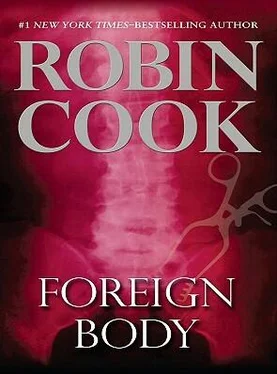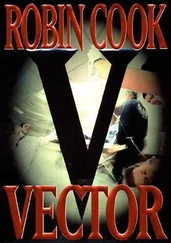“Doing the autopsy, we believe, is very important.”
“It could put a halt to a possible serial killer,” Laurie said. “What we are concerned about is the existence of an Indian angel-of-death healthcare worker flying under the radar here in Delhi, targeting American medical tourism patients. Now, we were going to go to the involved hospital administrations, but we have learned since getting here that the administrations are, for some ill-advised reason, totally against investigating this problem.”
“How have you heard about it?” Arun asked.
“By happenstance a young woman whom I have known for many years is here because her grandmother was the ostensible first victim.”
“I think you’d better tell me the whole story,” Arun said.
Between the two of them, Laurie and Jack told Arun everything they’d heard the night before from Jennifer and Neil, including the probable attempt on Jennifer’s life. Arun was captivated by the story and listened intently, hardly blinking. “And that’s it,” Jack concluded, and Laurie nodded. “If any cases needed an autopsy, it’s Maria Hernandez’s and the two others,” Jack added. “Our thinking is, we’re dealing with a probable poisoning, which an autopsy can often ascertain, and even suggest the likely agent. Of course, then it has to be confirmed by toxicology. One way or the other, we definitely need to do an autopsy on at least one case, and all three if possible.”
“The only toxicology labs here in India are at the public hospitals, like the All India Institute of Medical Sciences, where I am an alumnus, but you wouldn’t be able to do an autopsy there. That’s for certain. Vijay’s facility would be the best bet, and he could arrange for the toxicology to be done. You know, I heard of these two cases here at the Queen Victoria. There is not much chatter about them, but what there is, I did hear. You see, there are very few adverse outcomes in India with medical tourism cases, and when there is, it’s almost always a very high-risk case.”
“Usually in healthcare serial-killer circumstances,” Laurie said, “there’s an element of rationality perverted involved, such as a misconstrued desire to prevent suffering, or putting people in jeopardy to get the credit for saving them. Can you think of what could be the rationale here, killing American medical tourists? We certainly can’t.”
“I can right away,” Arun said. “Not everyone in healthcare in India is thrilled with this sudden explosion of the private sector, creating these islands of excellence, like the Queen Victoria Hospital. It’s fostering a startlingly divergent two-tiered system. Right now more than eighty percent of healthcare spending is in this relatively small sector, starving the much larger public health system, particularly in arenas like communicable diseases in rural areas. I know a number of academic types who are passionately opposed to the Indian government’s subsidy of medical tourism, even if ultimately it is for India’s good in relation to foreign exchange. To understand, all you’d have to do is travel from this hospital to a public hospital. It is the equivalent of moving from medical nirvana to a medical underworld.”
“That’s fascinating,” Laurie said. “It never entered my mind to think of it as a zero-sum situation.”
“Nor I,” said Jack. “That means there are probably radical medical students who are against it as well.”
“Without doubt. It’s a complicated issue, just like every other issue in a country with a billion people.”
“But why would the hospital administration want to block any investigation?” Laurie asked.
“I can’t help you there. If I had to guess, it’s probably some misguided bureaucrat’s decision. That’s the usual explanation for irrational behavior in India.”
“And why just Americans? You get medical tourists from other countries, right?”
“Absolutely. In fact, it’s my belief most come from the rest of Asia, the Middle East, Europe, and South America. Still, it is the USA that has been specifically targeted of late. I believe the government’s department of medical tourism is specifically looking to the U.S. as a major source of growth to push it beyond thirty percent per year. We have the capacity. The existing private hospitals are currently underutilized.”
“What is your personal feeling about medical tourism?” Laurie asked.
“Personally, I’m against it, unless the profits went for public health. But that’s not the case and will never be the case. The profits are being skimmed off by the new megabusinessmen, of which we have more than our share. Plus, in my view the two-tiered system that’s being created is ethically untenable.”
“Yet you are utilizing the private hospitals,” Laurie pointed out.
“I am. I fully admit, but I’m also doing my part for the public hospitals, too. I split my time, working pro bono at the public hospital as an ob-gyn while supporting myself and my family with my private infertility patients. Since there are not too many of us, I’ve made it a point to join the staff of most private hospitals for my patients’ convenience, although I have offices only at two.”
“Are you on the staff at the Aesculapian Medical Center?”
“I am. Why do you ask?”
“There was a third death at that hospital related to the two here. We believe whoever is involved must have an association at both institutions. It’s what makes us believe we might be dealing with a physician.”
“That’s a good point,” Arun said.
“Since you are not for medical tourism, perhaps you might not be willing to help us solve a mystery that seems to be giving the medical tourism a black eye. It could even be one of your fellow academics or one of your radical students who is at the bottom of it.”
“I don’t condone this methodology,” Arun said categorically. “I’m more than happy to help. In fact, with my interest in forensics, I’ll find it intriguing. What’s first?”
“The autopsy, without a doubt,” Jack said.
“Let me call Vijay,” Arun said, picking up his phone.
October 19, 2007
Friday, 9:45 a.m.
New Delhi, India
Inspector Naresh Prasad was bored and uncomfortable. He’d had his tea, and he’d read the newspaper cover to cover. He had been sitting in the driver’s seat of his Ambassador for almost three hours, with no sign of Jennifer Hernandez and no word from the concierge desk. Although he was certain he’d probably bump into her the moment he left the car, he did it anyway, leaving his door ajar.
Standing outside, he stretched, then bent over and almost touched his toes. It was the best he could do. The Sikh doorman waved and smiled. Naresh waved back. Still no Miss Hernandez. He looked back in the car. Although he knew he should show appropriate patience and get back in the car, he couldn’t get himself to do it. It was too hot in the car with the sun beating down.
He glanced back at the hotel. What was she doing? Why hadn’t she come down? But then he realized he was just assuming she’d not come down, and he was assuming that if she had, then Sumit would have notified him as per his offer to keep him informed. All at once, Naresh decided it was time to find out if she’d been spotted.
Closing his car door, Naresh crossed under the porte cochere, constantly on the lookout for Miss Hernandez. He entered the hotel and, still careful, he went to the concierge desk.
“Good morning, Inspector,” Lakshay said. Sumit was busy with a guest.
“She’s not appeared?” Naresh demanded, as if it were somehow the fault of the concierges.
“Not as I’m aware. Let me check with my colleague.” Lakshay tapped Sumit’s arm to get his attention. Lakshay discreetly whispered behind a raised hand.
Читать дальше












